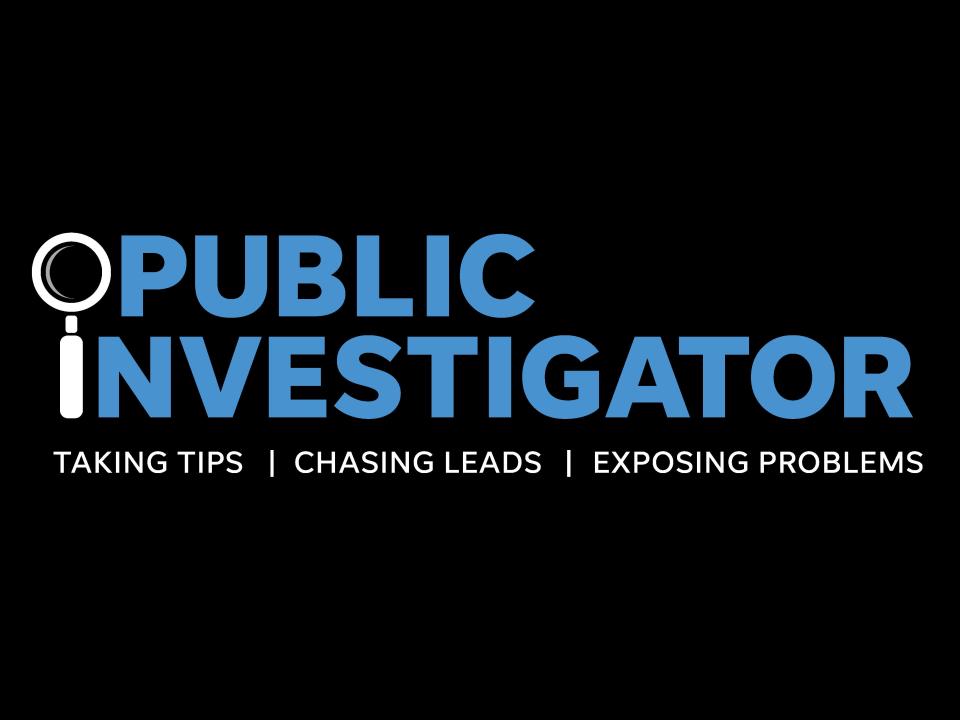His insurance card said out-of-network care was covered. Then, he found out it was a typo.
No one's thrilled when their doctor says they need a colonoscopy. But the five-figure medical bill that later landed in Mike Meier's mailbox proved to be much worse than the procedure itself.
In December 2022, Meier's doctor recommended a colonoscopy for routine cancer screening. When Meier arrived at Aurora Health Center in Greenfield for the procedure, he thought his Alliant Health Plans insurance would cover the charges.
After all, Meier's insurance card, which he brought to the appointment, stated out-of-network care was covered. And his plan was offered through HealthCare.gov, which he assumed covered preventive procedures.

Three months later, Meier received a bill for $10,745.
When Meier asked Aurora about the bill, the health care system said Alliant denied the charges because the procedure was completed by an out-of-network provider.
Through numerous complaints, appeals and a letter to the commissioner of insurance in their new home state of Georgia, Mike Meier found out Alliant had misprinted his insurance card: He had out-of-network coverage only for emergency care.
Despite the error, both the health system and the insurance company were unwilling to reduce Meier's charges because the couple had selected a plan with a $20,000 deductible. Because the colonoscopy was not a covered service, that meant — misprint or not — they'd still have to pay.
As users of HealthCare.gov's Affordable Care Act plans for over 10 years, the Meiers were shocked a preventive procedure like a colonoscopy wouldn't be covered.
"I had heard or thought at the time that it would be completely covered because it was an Affordable Care Act plan," said his wife, Julie Meier.
After Mike Meier lost his job earlier this year, the couple told Aurora the huge medical bill could put them into bankruptcy, she said.
In a statement to Public Investigator, an Aurora Health Care spokesperson acknowledged how "unexpected medical bills can be distressing" and advised patients to contact their insurance provider before a procedure.
"We are committed to transparency in our billing practices and to guiding patients as they navigate and plan for the cost of their care," said spokesperson Adam Mesirow.
He said Aurora offers several services like cost-of-care estimates, financial assistance programs and charity care.
Alliant Health Plans declined to comment, citing patient privacy. The company also declined to offer Mike Meier a patient privacy waiver that would allow Alliant to speak about his case.
The couple's yearlong search for answers reveals how even the smallest assumption can have major consequences in health care billing, despite reforms meant to prevent such surprises. That's especially true with colonoscopies, which have been frequently confusing for patients and insurers to navigate.
MORE: Two sisters are finding that colonoscopy pricing is a pain in the butt
Alliant admits the card was misprinted, but says it wouldn't have made a difference
After receiving little insight from Aurora and Alliant, the Meiers reported their case to the Georgia Insurance Commissioner last year.
In a letter to the commissioner, Alliant admitted the insurance card "mistakenly indicated that Mr. Meier had out-of-network benefits." Alliant clarified Mike Meier's plan allows for out-of-network coverage only in the case of emergency medical services.
A corrected card was sent to Mike Meier 13 days after he received his colonoscopy, Alliant said.
Regardless of the error, Alliant wrote, the colonoscopy would not have been covered.
Julie Meier didn't understand why the preventive procedure — one of the most effective ways to reduce the risk of colorectal cancer — wouldn't be covered.
The answer is in the details.
All HealthCare.gov plans are required to cover certain preventive services, a Centers for Medicare and Medicaid Services spokesperson told Public Investigator. Those services include screening for colorectal cancer in asymptomatic adults who are 45 to 75 years old and at average risk of colorectal cancer.
However, when Mike Meier received the procedure, he was only 44 years old — barely missing the age cutoff.
Additionally, the spokesperson said the procedure is covered only when performed by a provider in the plan's network.
"However, nothing in the (Affordable Care Act) prevents the plan from covering the services out of network," a CMS spokesperson added. "This will be determined by the terms of the individual’s plan and applicable state law."
Mike Meier had a benign polyp removed during the screening, but the CMS spokesperson confirmed that does not alter a patient's eligibility for coverage. Providers have incorrectly billed patients for polyp removal during colonoscopies in the past.
Wisconsin state statute and administrative code also outline a few more protections.
In most cases, insurers covering Wisconsinites are required to cover colorectal cancer examinations and lab tests for patients 50 years of age or older, or patients under 50 years of age who are at high risk for colorectal cancer, according to the Wisconsin Insurance Commissioner.

Insurers responsible for clearly stating out-of-pocket maximums
There was one more safeguard that might have protected Mike Meier.
Under the No Surprises Act, a law that went into effect in 2022, group health plans and insurance companies are required to state in clear writing the maximum out-of-pocket limit that a patient can be charged.
The law is meant to protect people from surprise billing, which is when patients receive an unexpected charge for medical care at an out-of-network facility, often after an accident or emergency.
In Mike Meier's case, his Alliant insurance card should have accurately communicated the amount of coverage he had for out-of-network treatment, according to the CMS spokesperson. In addition, Aurora could have verified the information ahead of his appointment, although that was not required, the spokesperson said.
In Alliant's response to the Georgia insurance commissioner's inquiry, the company said an Aurora representative called Alliant at 4:04 p.m. the day of Mike Meier's appointment. That's when Alliant confirmed he did not have out-of-network benefits, the letter said.
By that time, the Meiers said, his procedure was already complete.
Lisa Grabert, a visiting research professor at Marquette University who specializes in insurance policy, said the unusual circumstances the Meiers faced with the inaccurate card might fall into a gap of cases the law doesn't cover.
Since the No Surprises Act is a fairly new law for the American health care system, Grabert said some companies are still adapting, and many cases fall outside of the law's purview.
"(Lawmakers) need to go back and really legislate around possible holes in the legislation where people might be trying to get away and around the rules," said Grabert. "I'm not sure that the rollout of the law has been quite what anybody has intended."
According to CMS, over the next few years, regulations will be issued to enforce the provisions protecting patients who mistakenly receive care from out-of-network providers due to inaccurate information.
For now, insurance companies are expected to comply with these provisions using "a good faith, reasonable interpretation of the statute."
More: If you're having a health insurance dispute in Wisconsin, here's how to get help
Days after Public Investigator contacted Aurora, Meier's bill was discounted
After Mike Meier lost his job earlier this year, the couple, who had been paying a $385 monthly medical bill, turned to Public Investigator.
Public Investigator contacted Aurora in late March. The next day, Julie Meier said Advocate Aurora's vice president of patient experience, Bradley Krueger, called her husband to talk about the couple's bill.
The next week, Mike Meier received a new statement that showed his charges had been discounted by $3,700.
Despite multiple attempts, both Public Investigator and the Meiers have been unable to reach Krueger regarding how this discount came to be.
Either way, Julie Meier said the discount is a relief after nearly a year of trying to dispute or reduce the charge.
"It's definitely a step in the right direction," she said.
Tamia Fowlkes is a Public Investigator reporter for the Milwaukee Journal Sentinel. Contact her at tfowlkes@gannett.com. Quinn Clark is a Public Investigator reporter for the Milwaukee Journal Sentinel. Contact her at qclark@gannett.com.
How to get help with an unexpected medical bill
If you receive a surprise medical bill, you can contact the federal government's No Surprises Help Desk at 1-800-985-3059 or submit a complaint online at www.cms.gov/medical-bill-rights. The state or federal government can investigate the case and may be able to help.
The U.S. Department of Health and Human Services' guide for Affordable Care Act and Medicare coverage requirements for colorectal cancer screenings is available on health.gov.
Do you have a tip? Contact Public Investigator

Government corruption. Corporate wrongdoing. Consumer complaints. Medical scams. Public Investigator is a new initiative of the Milwaukee Journal Sentinel and its sister newsrooms across Wisconsin. Our team wants to hear your tips, chase the leads and uncover the truth. We'll investigate anywhere in Wisconsin. Send your tips to watchdog@journalsentinel.com or call 414-319-9061. You can also submit tips at jsonline.com/tips.
This article originally appeared on Milwaukee Journal Sentinel: Couple faces $10,000 bill for colonoscopy after insurance card misprint

